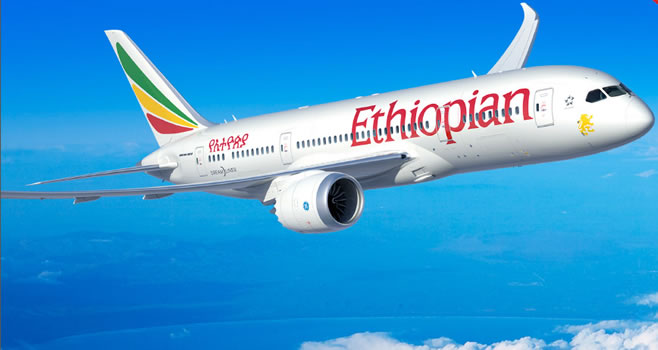
Tasew spoke against the backdrop of the recent reports alleging maltreatment of Nigerians by Ethiopian police and immigration officials.
While denying the allegations that Nigerians travelling through the Bole airport hub are maltreated unjustly and subjected to unfair police and immigration detention, he pointed out that only passengers who fail to comply with the required international security standards are delayed or sometimes detained for normal police and immigration processes.
The Nigerian Ministry of Foreign Affairs has said over 270 Nigerian are serving various prison terms in Ethiopia, adding most were imprisoned for drug-related offences.
The MFA was reacting to a recent viral video by one Dr. Paul Ezike, making the rounds on social media on the alleged plight of Nigerian inmates in the Kaliti Prison in Ethiopia.
However, the Ethiopian Airlines GCEO, in an interview with journalists in Addis Ababa last week, said efforts were being made by the carrier to address the issue.
This he said led to a recent meeting with the ambassadors of some eight African countries in Addis Ababa.
Tasew said, “We had to call about eight ambassadors from West Africa to my office. They were kindly willing to come-Nigeria, Togo, Senegal, Ghana. So, they expressed their concern. So, we are discussing this. It is unfortunate, we don’t want any passenger to be inconvenienced as they pass through Addis Ababa airport, but some of these things are beyond our control. So that is the case. Otherwise we don’t want anyone to be inconvenienced.”
Lamenting the situation further, the Africa largest carrier boss said its findings had shown that some passengers transiting through the Bole airport hub often were carrying beyond the required amount of dollars or precious metals allowed by the Ethiopian government laws.
He observed that the failure to declare such huge amount to the Customs officials at the point of entry often had led to the arrest and detention of such passengers.
Tasew however noted that plans were on by the government of Ethiopia and Nigeria to resolve the matter through diplomatic channels.
He said, “Some passengers are found carrying drugs. If they are found carrying drugs, definitely they are not allowed to continue their flight. The security people will take them under custody. If they are found carrying weapons without permission, they do the same thing until they investigate and see that it is an approved weapon and so on. So, some passengers, when they are found to be non-compliant, they can go under the custody of police. The second problem that we witness is that some people carry a lot of money on paper, a lot of dollars, or valuables like gold in large size or dollars for example in tens of thousands, hundreds of thousands, sometimes even millions; over a million dollars are carried in their bags.”
The African carrier GCEO said such passengers might probably not have incurred the wrath of the Ethiopian government if they were not passing perhaps a day in the country during their flight.
He said, “If they are transiting without coming to Addis, the security people don’t touch them. They can carry the money because it’s their money, they are not coming to the country. However, for some reason if they want to pass a day or a night to get their connection and they have to come out to the hotel, the national regulation says that all passengers carrying over $10, 000 or its equivalent or in gold or other normal ornament, have to declare it at the Customs section on arrival. You have to tell them that ‘I am carrying $30,000.’ They may ask you, ‘where is it’? You can take it out from your bag and show them. You are then asked to sign on a piece of paper they will give you. And the next morning when you are going out, as you pass through the X-ray, the Custom officials are there. If they see it and ask you whether you have a permit to carry the money, you then show that paper and nothing will happen. You are free to carry out your money, even if it is $1m. All they are asking you to do is to declare it.
He added, “If you don’t declare, then the government assumes some Ethiopians had met with you in order to take such hard currencies out of the country. So, the government assumes that if you didn’t declare it when you were coming in, then it means it’s not your money; somebody in the city has given you the money, so it is illegal to take out the money. The government confiscates the money. This is another problem that we have. So, to protect them from doing this, you may have heard that before the flight arrives, the cabin crew announce to all our esteemed passengers to declare to Customs if they are carrying more than $10,000.”





